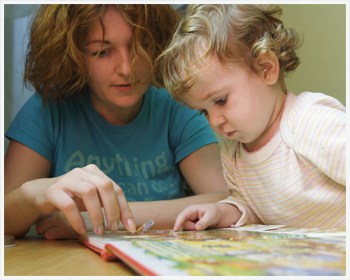Humor Me: Laughter Leads To Longevity
 Time and time again, studies have shown that people who have a positive outlook and find humor in everyday situations can actually live longer! A daily dose of belly laughs can improve your mental and physical state, making the case that laughter really is the best medicine.
Time and time again, studies have shown that people who have a positive outlook and find humor in everyday situations can actually live longer! A daily dose of belly laughs can improve your mental and physical state, making the case that laughter really is the best medicine.
Laughter boosts your immune system.
Positive thoughts and laughter help to release cells in the body that strengthen your immune system and fight illnesses, making you less likely to get sick. On the occasions when you do become sick, your body will be ready with the cells it needs to respond to the illness.
Laughter keeps your heart healthy.
After a good laugh, your heart rate and oxygen intake increase. This allows oxygen to flow more freely through your blood vessels and can reduce blood pressure levels. With improved function of the heart, your risk of a heart disease decreases.
Laughter releases endorphins.
The act of laughing triggers the release of endorphins, the body’s natural “feel good” chemicals. Endorphins play a big role in your mental health, connection with others and overall personal satisfaction, so the more giggles the better!
Laughter relieves stress.
When you laugh, you actively reduce the amount of stress hormones, known as cortisol, and inflammation found in your body. The entire body relaxes for up to 45 minutes after laughing, relieving muscle tension, improving your mood and reducing anxiety.
Laughter increases brain function.
The increased blood flow that results from laughing is also good for the brain. It can improve brain function and memory and help to combat depression. Laughter can also help improve coping skills and spark creativity.
Look on the bright side and start with a smile today! Get together with a group of good friends, watch a funny movie or comedian, play with your kids or grandkids, or spend time with a pet. You’ll be more apt to find humor in life and, in turn, reap the mental and physical benefits of laughter.
How To Instill Leadership Skills In Your Child’s Future
The role of a parent can often become quite hectic with the demands of daily life. Along this daily journey, many parents don’t realize their influence on their children’s minds. Our children watch as we balance these demands and lead the family through each day.
While leadership skills can come naturally, children learn lessons that significantly impact them later in life. The right words at the right time can make all the difference.
Here are five ways to help you instill the right leadership skills in your child’s future:
Be A Good Role Model
Be aware that your child is watching, and allow them to see how well you balance your business and personal demands each day.
You Win Some, You Lose Some
Great leaders handle failure as gracefully as they handle success. Emphasize perseverance. Your children must understand that success as a leader can be achieved through persistence, hard work, and a good heart.
Encourage Them To Talk
Allow your children to speak for themselves with servers at a restaurant, a grocery store clerk, or the lifeguard at the swimming pool. Through your guidance and allowing them to speak for themselves, this will help them gain confidence in themselves.
Bookworms Become Leaders
Studies have shown that children who read want to know more and ask questions to delve deeper into various subjects. This inquisitive side of a child is the best foundation for a leader’s growth.
Optimism Beats Pessimism – Every Time
Your child should be aware that optimism is connected to success. Reward optimism, especially when a goal is achieved.
In small ways, today’s leaders can prepare younger generations for their future as business leaders. These suggestions will create better leaders to help children perform better in school and develop better personal relationships.
How To Get The Most Out Of Your Senses
The five senses—taste, smell, sight, sound, and touch—are an integral part of our daily experiences. The beach smells like saltwater, the sound of birds chirping makes us think of spring, and a hug can convey deep emotions. You can heighten your senses even more by taking intentional steps to build and nurture them.
Taste
Keep your tastebuds active by trying new foods! While you may not love everything you eat, exposing yourself to new experiences will stimulate your sense of taste. In addition, be sure to eat a healthy diet; too much salt or sugar can desensitize your mouth to these tastes, dulling their effect.
Studies have shown that our sense of smell is increased after moderate exercise, so make sure you incorporate movement into your everyday life. Smelling strong scents throughout the day, such as a fresh cup of coffee, a candle, or flowers from your garden, can also help to stimulate your sense of smell.
Sight
Activities that require the eyes to focus are good for preserving your sight. Drawing, doing word searches or crossword puzzles, and even playing video games can be beneficial to your vision. You can also keep your eyes healthy by exercising, eating a balanced diet, and getting plenty of sleep.
Sound
Listening to music is an ideal way to heighten your sense of sound as your ears process different pitches, rhythms, and beats. Just be sure to keep the music at a reasonable level so you don’t damage your eardrums. On the flip side, meditation can also be helpful to build your sense of sound as the quiet can help you focus on what you hear during your practice.
Touch
Participating in activities that require you to focus on your hands and fingertips, like tai chi or pottery making, can help increase your sense of touch. Going barefoot sparks feeling in your feet that would otherwise be dulled by shoes. Taking a cold shower can also awaken your nerve endings to stimulate the sense of touch.
The Benefits of Male and Female Teachers in Early Education
The Benefits of Male and Female Teachers in Early Education
Early childhood education refers to the learning that occurs from birth to age eight, including daycare, preschool, kindergarten and up until second grade. Safe and nurturing early childhood education programs are crucial to help children develop physically, socially, emotionally, and intellectually. While the early education workforce largely consists of female teachers, having the opportunity to learn from a male teacher can be very beneficial as well. Here’s why:
- Male and female teachers have different viewpoints. Children are sponges and absorb so much information in daycare and school. When both male and female teachers are present in early childhood education programs, children have the advantage of learning from both of their viewpoints and incorporating that knowledge into their everyday lives. This diverse learning environment can greatly benefit students as they grow.
- Male teachers can serve as role models. In the early childhood education setting, teachers are kind, caring, and patient, among many other things. Having a male teacher who exhibits these personality traits is ideal for both boys and girls. Being a positive male role model helps all students, but specifically can be helpful for those who don’t have a father figure in the home.
- Learning from a male teacher can help break down stereotypes. Seeing male teachers in the classroom is a great way to show children that they can be anything they want to be in life. In addition, early childhood educators who are male can also show students (particularly boys) that being empathetic, emotional, and caring is a good thing.
- Males have a different way of teaching. Male teachers are more likely to have an active classroom and use humor to engage students. While studies have shown that students learn just as well with male and female teachers, some students may benefit from this type of classroom.
Many parents appreciate the opportunity for their children to learn from a male teacher in the early childhood education setting. If your child is placed in a classroom with a male teacher, consider yourself lucky and enjoy the year!
Keep Calm And Carry On
It may be the most wonderful time of the year, but for many, it can also be the most stressful. Now that Thanksgiving has passed, the gears have switched and it’s time for holiday shopping, schedule-organizing and making travel plans, on top of end-of-the-year tasks at work and planning for 2023. With all there is to do, it’s no surprise if you’re having feelings of dread instead of feelings of joy. Try these calming tips to get through the busy season:
Set aside time for yourself. If you have children, work in an office and host family for the holidays, it’s likely that you don’t get much time to yourself, away from everyday noise. Setting aside 15 to 30 minutes in the morning as soon as you wake up, during your lunch or before bed may not seem like a lot, but it can give you the space you need to focus on yourself and read a book, meditate or work on a hobby.
Get some fresh air. Have you noticed the seasons changing and the leaves falling, or have you been too focused on tasks indoors to “stop and smell the roses.” The benefits of time spent in nature have been widely studied and documented, but we don’t always have the time to go on a hike. Next time you are leaving your house for work in the morning, or walking to your car after holiday shopping, stop and take a look around, breathing in the fresh air.
Stay organized. If you can’t mitigate stress with quiet time because you simply have so much to do, the best thing may be to tackle it head on. Sometimes the most soothing way to deal with a busy schedule is to make a list and watch as you cross items off throughout the day.
Languages: The Beauty and Benefits of Multiple Voices
According to the U.S. Census Bureau, more than 60 million Americans, or 20 percent, speak a language other than English at home. In total, approximately 430 languages are spoken in homes across America. As the number of people who speak one or more languages continues to grow, researchers are able to study how being bilingual or multilingual impacts society. Their conclusions are clear: speaking more than one language has many benefits.
- Knowing more than one language is good for the brain. Research has shown that young children who are exposed to more than one language have increased executive function in their brains; that is, they are better at performing complex tasks, multitasking and monitoring their performance. For older people, speaking more than one language is also helpful, as it can delay the development of Alzheimer’s disease symptoms by four to five years.
- Opportunities for work increase for those who are bi- or multilingual. Being able to communicate with others throughout the world and throughout your community is a valuable employee trait. Job seekers who speak more than one language are more competitive in today’s diverse work environment and can often garner higher earnings than those who speak one language.
- Speaking in a native tongue makes for more meaningful travel experiences. When traveling abroad, those who speak the language of the country they are visiting have more access to hotels and activities, as they are not limited to those that accommodate foreigners. Often travel can be less expensive—and more authentic and rewarding—with these options.
- Being bi-or multilingual opens up one’s world. Speaking in multiple languages allows people to do more than just communicate; it allows them to truly connect with one another. Language is the gateway to learning about other cultures’ traditions, history and viewpoints and leads to increased understanding, empathy and friendship. Knowing more than one language can broaden a person’s perspective, allow them to see the world through new eyes and express themselves in a different way.
Fun Ideas To Make Your Child Smile!
 After a summer of fun and spending time together, it’s back to hard work and days apart from each other. Lunchtime offers your child a break from the busyness of the school day, and also offers a chance for you to make them smile, and even cheer them up in that adjustment period. While you may not be able to visit them for lunch every day, there are still a few ways to sneak a little love into this mealtime:
After a summer of fun and spending time together, it’s back to hard work and days apart from each other. Lunchtime offers your child a break from the busyness of the school day, and also offers a chance for you to make them smile, and even cheer them up in that adjustment period. While you may not be able to visit them for lunch every day, there are still a few ways to sneak a little love into this mealtime:
Write a note. Sometimes the easiest way to make someone smile is to write them a note and show you are thinking of them. It doesn’t have to be elaborate – a simple “I love you” or “Have a great day” will most likely do the trick if they are missing mom or dad during the school day.
Surprise them with a treat. What better way to make your child look forward to lunch and smile everyday than surprising them with a sweet treat, or even just a new kind of snack or sandwich? Go shopping together, or keep a cabinet up high filled with secret options to choose from so that every day is exciting for your little one when they open their lunch bag.
Pack it all up nicely. When you don’t have any special snacks stocked in your home to sneak in to your child’s lunch bag, sometimes the bag itself can be the treat. Get your child excited to see what you’ve packed for the day by letting them pick out a new exciting lunch bag for the year with their favorite cartoon or movie characters. The more compartments to explore and hide snacks in, the better.
Read To Your Child… Infant To PreK
 Did you know that reading to your children at a very early age often prepares them for success in Kindergarten and beyond? Yes, a simple and effective way to prepare our children for formal schooling is to read together on a daily basis. Children who are routinely read to from infant, toddler and Pre-K are much more academically prepared to learn than children who were not read to – AND – children who have been routinely read to enter kindergarten prepared to learn from the very first day! There is no to catch them up on skills.
Did you know that reading to your children at a very early age often prepares them for success in Kindergarten and beyond? Yes, a simple and effective way to prepare our children for formal schooling is to read together on a daily basis. Children who are routinely read to from infant, toddler and Pre-K are much more academically prepared to learn than children who were not read to – AND – children who have been routinely read to enter kindergarten prepared to learn from the very first day! There is no to catch them up on skills.
So how does reading aloud together prepare our children for kindergarten? When we read, think about all words that your child is hearing and beginning to understand before they enter the kindergarten classroom. Studies show that the number of vocabulary words a child knows upon entering kindergarten is an indicator of academic success in the years ahead. In addition, reading to our children also develops their listening skills and attention spans which is very important to success in a classroom environment.
The Golden Oldies of Outdoor Play for Kids
 While things have certainly changed over the past several decades, classic outdoor games for children remain the same. If your child needs to burn off some energy, send them outside to play one of these “Golden Oldies” of outdoor play. You can even join in the fun too!
While things have certainly changed over the past several decades, classic outdoor games for children remain the same. If your child needs to burn off some energy, send them outside to play one of these “Golden Oldies” of outdoor play. You can even join in the fun too!
Hide and Seek
The game of Hide and Seek originated in ancient Greece in the 2nd century and is a kid-favorite to this day. Set ground rules for where kids can hide on your property and enjoy the shrieks that will ensue once the hiders are found. Hide and Seek can also be played by hiding objects or in reverse, as in the game of Sardines.
Capture the Flag
For slightly older kids, Capture the Flag offers a battlefield-like game that can keep them entertained for hours. This game is best played in areas with lots of hiding spots and barriers to allow children to move stealthily to steal the other team’s flag.
Tag
When you’ve got a group of kids together, it’s inevitable that someone will initiate a game of tag. There are countless variations on the game of tag: freeze tag, flashlight tag, shadow tag, statues, and so many more. Challenge your kids to create their own version of tag and see what they come up with.
Hopscotch
Hopscotch is a great solo game that kids can play just about anywhere. Add a piece of chalk and a flat rock to your backpack or purse and you can set up hopscotch on a sidewalk or driveway. You can change the game by adding time limits, varying the size and shape of the squares, or marking each square with a different category.
Obstacle Course
Just about anything can be turned into an obstacle course for kids; simply devise a course and then time them as they navigate it. In the backyard, use hula hoops, cones, pool noodles, steppingstones to create a course. If you’re on a playground, map out a path that leads kids through all the equipment to a finish line.
Summer Camp 2023 — Highway to Heaven — Ends September 1st
 Every year the leaders at Apple Tree Learning Center plan a specially-themed summer camp that is sure to entertain, educate and elevate every camper to a new level of confidence!
Every year the leaders at Apple Tree Learning Center plan a specially-themed summer camp that is sure to entertain, educate and elevate every camper to a new level of confidence!
This year we are celebrating with the theme – “Highway to Heaven!” Our teachers have planned weekly themed events to take the campers on a journey of discovery with fun activities while learning about God’s creation and stories of the Bible. We have field trips for our 4yr and School age groups, water play, cooking projects, science projects, in house events and crafts. This daily adventure will included fun, learning, and timeless Bible stories.
The greatest benefit of our annual summer camp program is that it prepares your child to walk into the school year with even more knowledge, confidence and motivation to succeed in the classroom.
If you are searching for the perfect SUMMER CAMP HOME for your child in 2023, please contact our Suffolk, Executive, Mt Pleasant, and Hickory location to sign up.
We are here to answer your questions so that you can learn more about all of the plans that we have for your child to have fun with their friends exploring, dreaming, thinking, creating, and most importantly … a summer filled with learning and fun!







